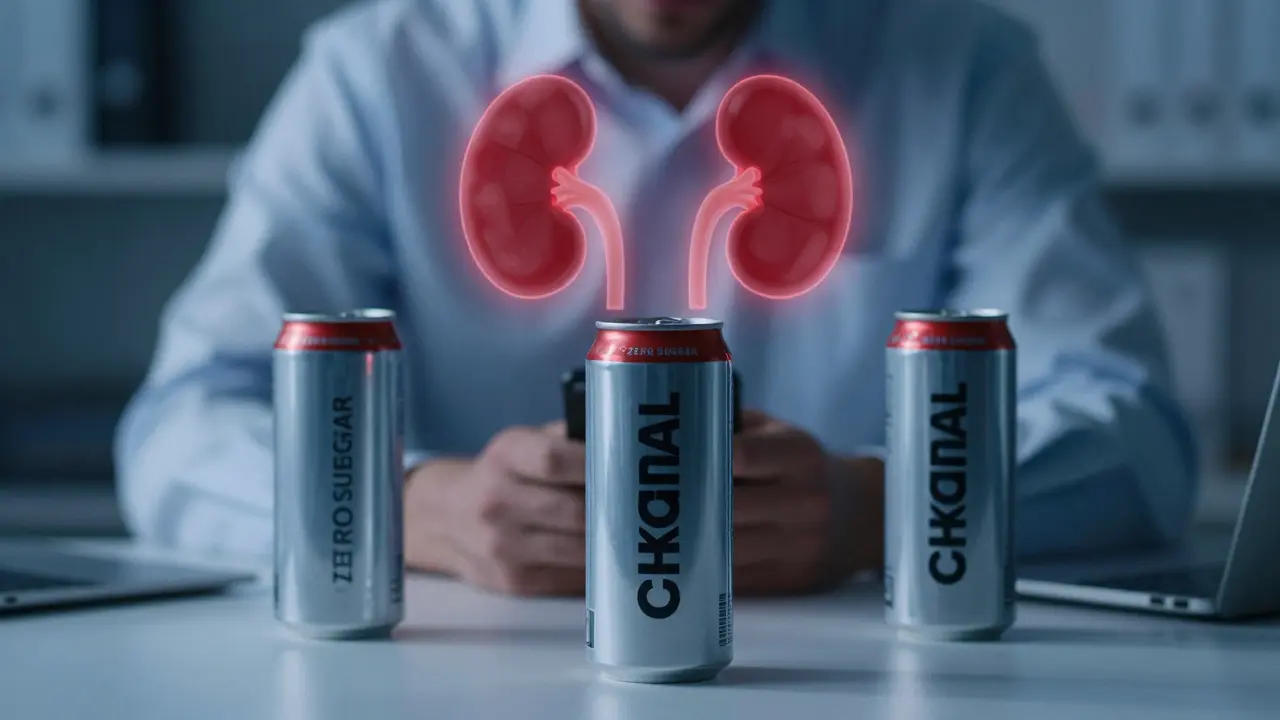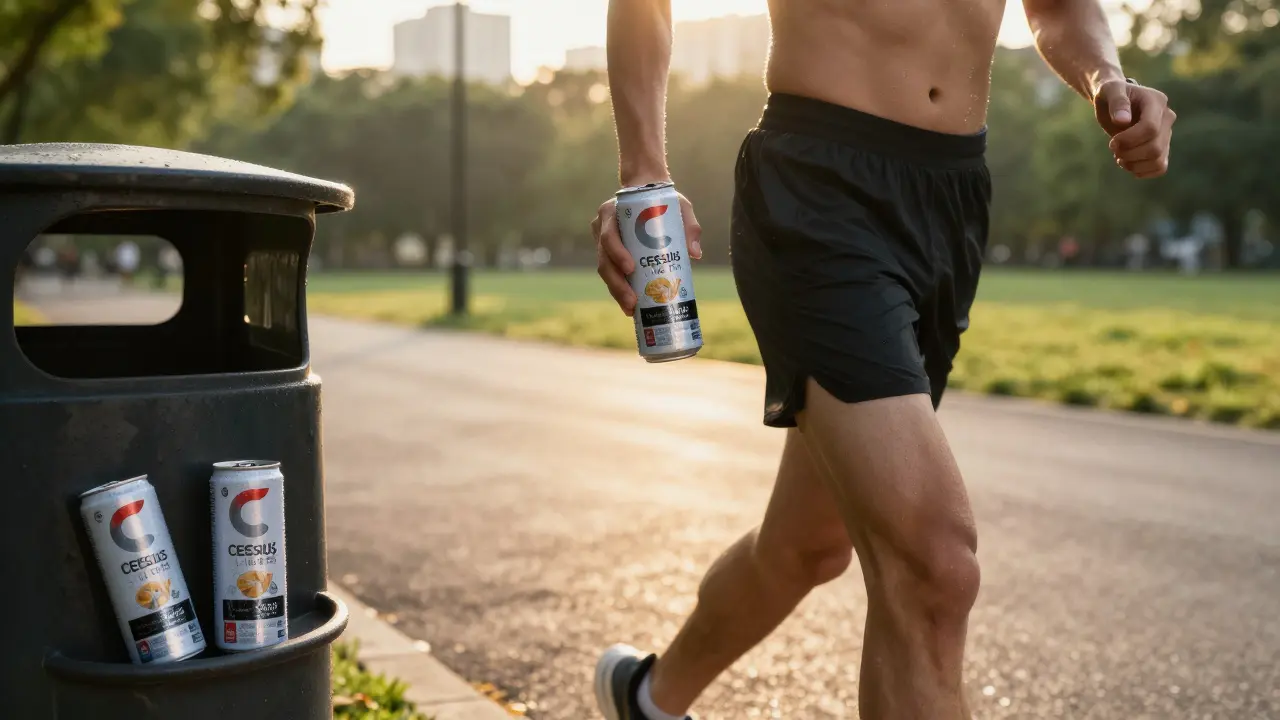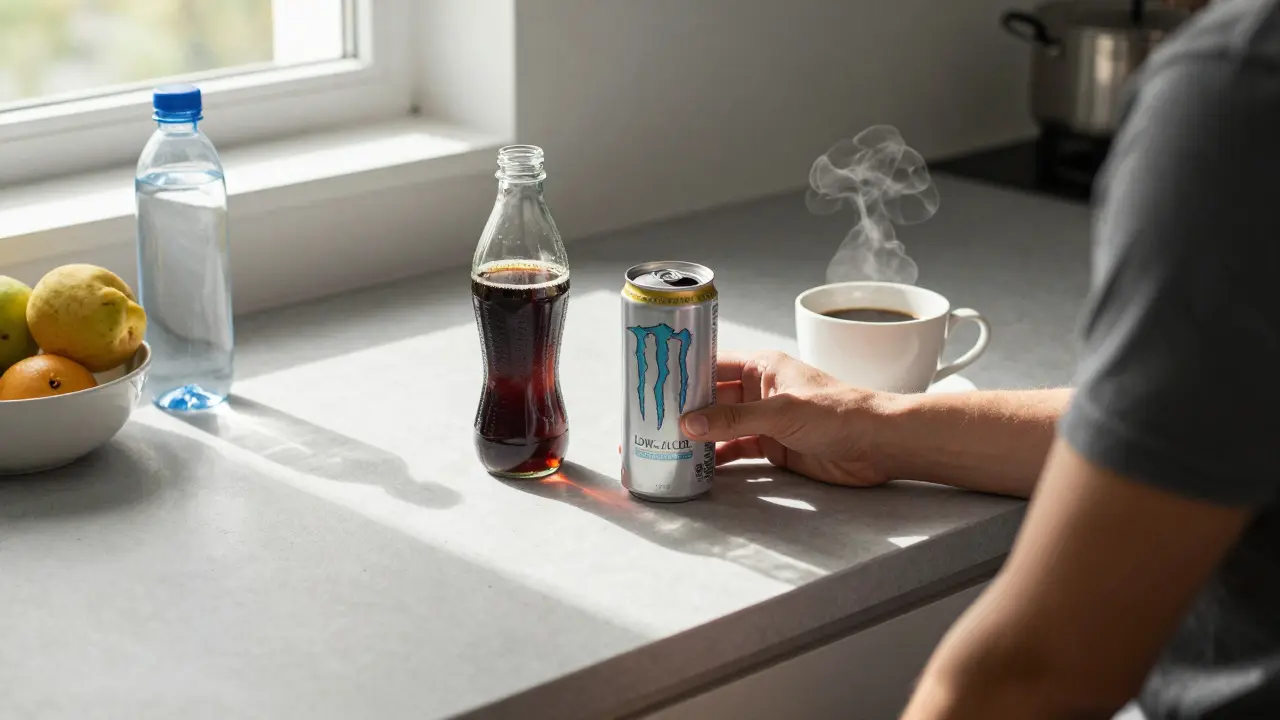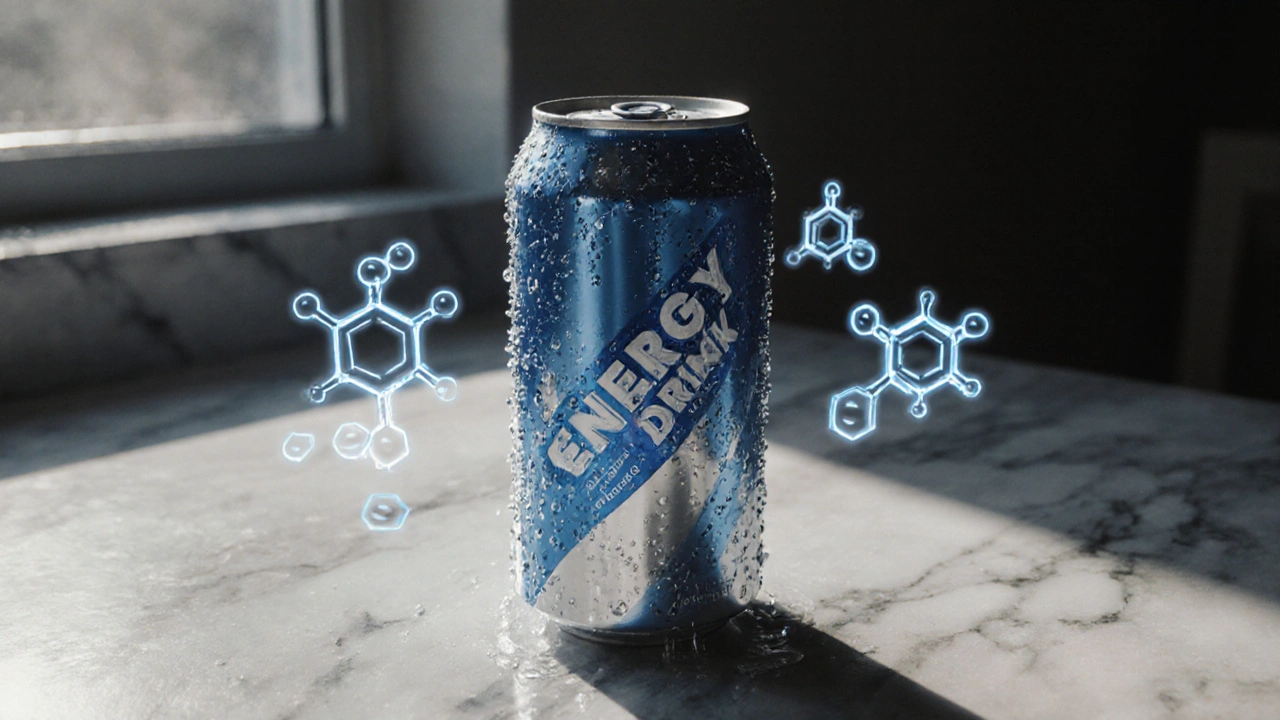Zero Sugar Energy Drinks: What’s Really in Them and Who They’re For
When you grab a zero sugar energy drink, a beverage designed to deliver stimulant-driven energy without added sugars. Also known as sugar-free energy drinks, it’s become the default choice for people trying to cut calories, manage blood sugar, or avoid the mid-afternoon crash. But just because it says ‘zero sugar’ doesn’t mean it’s harmless. These drinks still pack caffeine, artificial sweeteners, and a cocktail of additives—all of which affect your body differently than plain water or coffee.
The biggest shift in recent years has been the rise of artificial sweeteners, chemical compounds that mimic sugar’s taste without the calories. Also known as non-nutritive sweeteners, they’re in nearly every zero sugar energy drink you’ll find on shelves. Sucralose, acesulfame potassium, and stevia are the big three. Some studies link them to changes in gut bacteria and altered insulin response, even when no sugar is consumed. That’s why people who switch from regular soda to zero sugar versions sometimes still feel cravings or energy dips—it’s not the sugar they’re missing, it’s the metabolic signal. Then there’s caffeine content, the primary driver of energy in these drinks. Also known as stimulant dose, it ranges from 80 mg to over 200 mg per can—roughly the same as a strong cup of coffee, but absorbed faster because it’s mixed with other chemicals that speed up digestion. And that’s where the real risk lies: high caffeine in a fast-absorbing form, without the natural buffers found in coffee or tea.
These drinks aren’t just for gamers or night-shift workers. Athletes, busy parents, and people with diabetes are turning to them as a ‘healthier’ alternative. But if you’re drinking them daily, you’re still exposing yourself to synthetic ingredients, potential heart strain, and sleep disruption—even if the label says ‘zero sugar.’ The truth is, there’s no magic formula that gives you clean energy without side effects. What you’re buying is a targeted chemical response, not a natural boost.
Below, you’ll find real reviews and science-backed breakdowns of the most popular zero sugar energy drinks. We’ll show you which ones deliver steady focus without the jitters, which ones might be doing more harm than good, and what ingredients to watch out for if you’re trying to protect your heart, liver, or sleep quality. No fluff. No marketing spin. Just what’s inside the can—and what it actually does to your body.
Zero sugar energy drinks may seem healthy, but daily consumption can strain your kidneys through artificial sweeteners, acids, and high caffeine. Learn the risks and how to protect your renal health.
Discover the best low-calorie energy drinks for weight loss in 2026. Learn which brands actually help you burn fat, avoid sugar crashes, and stay energized without adding calories.
No drink burns belly fat on its own, but low-calorie energy drinks can help by replacing sugary sodas and supporting active lifestyles. Learn what actually works-and what’s just marketing.
Zero sugar energy drinks may seem healthier, but they still contain high caffeine, artificial sweeteners, and acid that can harm sleep, teeth, and metabolism. Here’s what science says about their real risks.




